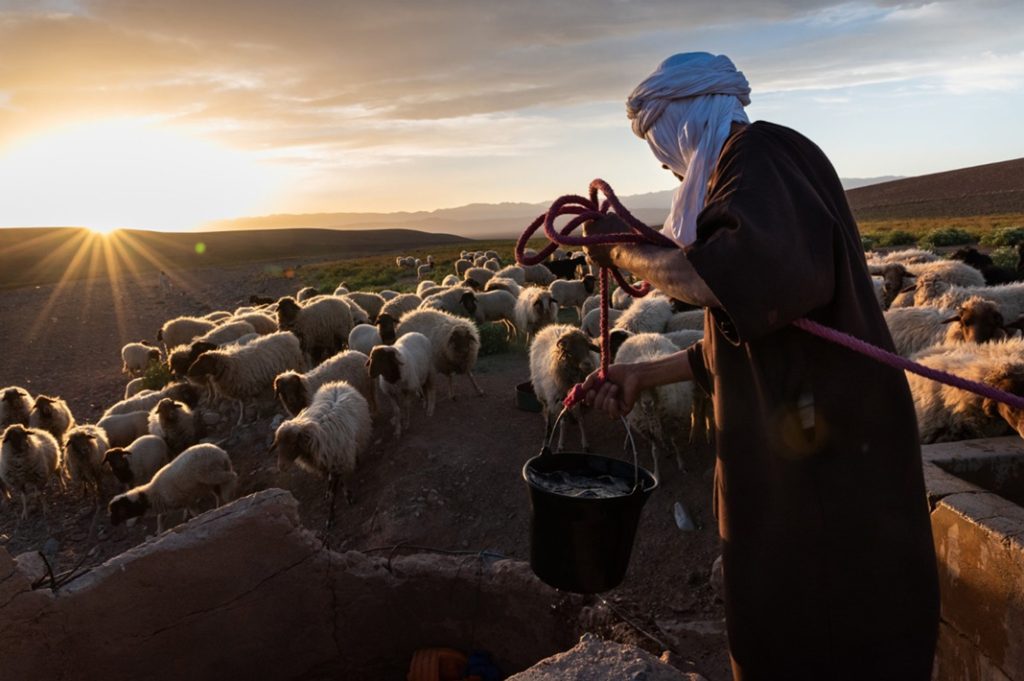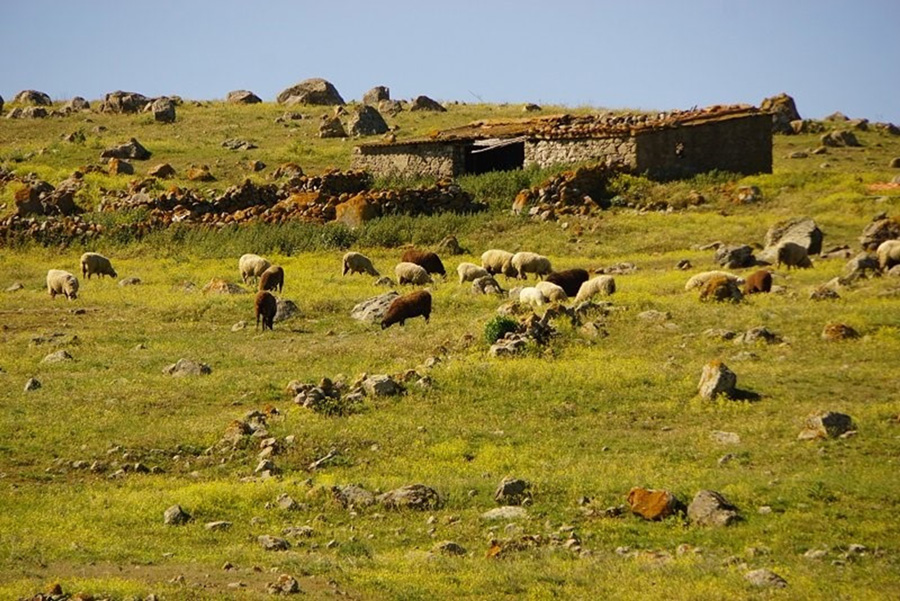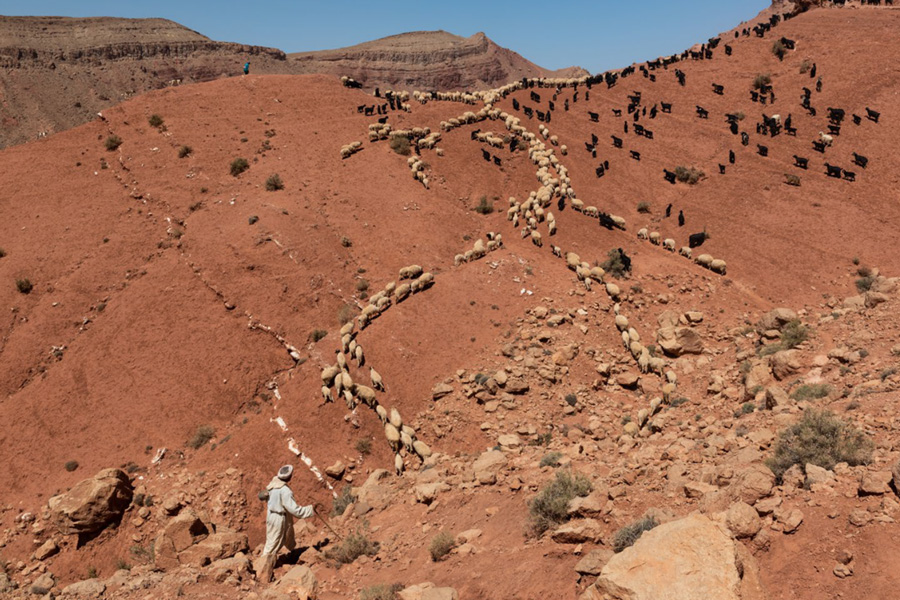
Traditional farming systems have been developed over generations of experience. Rooted in time-tested knowledge, these systems may hold valuable solutions for modern challenges like climate change and biodiversity loss.
From the Agdal system to the Mandra system, traditional practices offer insights for creating resilient agricultural landscapes. Developed over generations by local communities, these systems are not only integrated with their natural environments but also adaptable. This makes them a source of solutions to the increasingly pressing demands of climate change and other global pressures.
The Mandra System of Lemnos
The Mandra system, prevalent on the Greek island of Lemnos, is centred around two core principles: complementarity and diversification. Complementarity is the practice of integrating livestock and crop farming, an approach that benefits soil health, enhances biodiversity, and reduces wildfire risks. After crops are harvested, livestock are allowed to graze on leftover plant material, fertilizing the soil naturally as they go. This free-range grazing not only creates firebreaks but also disperses organisms across the landscape, thereby encouraging biodiversity. Diversification, the second element, is achieved by cultivating a variety of crops and livestock breeds. Practices such as crop rotation and intercropping help preserve soil quality and mitigate erosion.
The Mandra system is environmentally sustainable and economically beneficial. By providing fodder for livestock and producing a range of crops for local consumption, this integrated approach has allowed farmers to sustain a productive relationship with their environment despite growing challenges.

Photo: MedINA
The Agdal System of Morocco
The Agdal system, prominent in Morocco’s High Atlas Mountains, is less centred on agricultural practices and more on a community system which includes farming. It offers a community-centred approach to resource management, focusing on shared responsibility and participatory governance. Practices found in the Agdal system include regulated grazing and seasonal closure of pasturelands.
The Agdal system is managed by customary assemblies known as jmaas, who collectively decide on grazing periods and restrictions. This cooperative governance empowers community members, helping to resolve conflicts and distribute resources equitably, thus strengthening communal ties.
The Agdal’s benefits extend beyond community building. The seasonal closures allow vegetation to regenerate during critical growth phases, promoting biodiversity and enhancing the landscape’s overall resilience. In addition, the system creates an ecological mosaic across the landscape through staggered opening and closing times. This method has proven especially critical as climate change intensifies drought and extreme weather events in the region.

Photo: Inanc Tekguç
Bridging Past and Future
Despite their strengths, both the Mandra and Agdal systems face challenges. From younger generations moving to urban centres, leading to the loss of local knowledge and decline of traditional practices, to climate change exacerbating resource scarcity. However, organisations, such as MedINA, the Moroccan Biodiversity & Livelihoods Association – (MBLA), the Global Diversity Foundation, and networks, like ResAlliance or the Alliance for Mediterranean Nature and Culture (AMNC), are helping to bring these practices to the forefront, advocating for policies that protect and incentivize traditional agricultural systems. For example, the Terra Lemnia project, initiated by MedINA, helped formalise practices from the Mandra system into a Good Practice Guide and certification system.
By promoting certification and creating networks of local farmers dedicated to sustainable practices, initiatives like these demonstrate that traditional systems can be both economically viable and environmentally sustainable. Policies that protect communal land rights, support local agroecological practices, and provide market incentives can further strengthen these systems.
As climate change intensifies and solutions are needed to adapt to it and mitigate its impacts, the Agdal and Mandra systems offer viable models for sustainable resource management. They can provide a path to sustainable land management that fosters both human and environmental well-being. In preserving these systems, communities are not merely holding onto the past—they are working toward a more resilient future.
Discover more agricultural best practices
Visit ResAlliance’s official website
This article was originally written by:
IUCN Centre for Mediterranean Cooperation
The post Could traditional agropastoral systems be the key to a resilient future? appeared first on Resilience Blog.